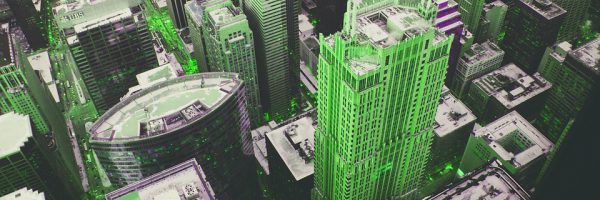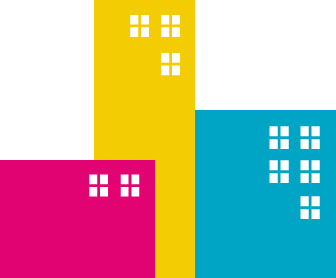
Sustainable Construction in the Dominican Republic
December 5, 2017
By: César A. Fernández F.
The author is a civil engineer specializing in infrastructure, urbanism, and public policy administration. He is also the Director of the Center of Urban and Infrastructure Studies at the Fundación Global Democracia y Desarrollo (Funglode).
In spite of infrequent mention and debate, the topic of sustainable construction is a fundamental basis of sustainable development, especially in a country like the Dominican Republic. Given that the country has committed itself to the United Nations’ Sustainable Development Goals (SDGs), particularly Goal 11: Make cities and human settlements inclusive, safe, resilient and sustainable, summed up in the phrase “Sustainable cities and communities,” one may recognize this to be the case.
Notwithstanding, in order to understand the importance of this issue, it is necessary to begin by defining first what sustainable construction is and from where the term originates. That said, in first place, we can define sustainable construction as construction that maintains a special respect and agreement with the environment and which involves efficient usage of energy, water, and materials that are not harmful to the environment in an effort aimed at the reduction of environmental impacts. This concept is also known as sustainable urbanism, and it has the objective of creating urban surroundings that do not threaten the local environment and which provide sufficient urban resources, going beyond their physical shape and water/energy efficiency to their functionality as a better place to live.
Sustainable construction, which is part of the triad of sustainable development, is based on a number of eco-friendly principles, as follows:
- Resource conservation;
- Resource reutilization;
- Utilization of recyclable and renewable resources in construction;
- Considerations for life cycle management of raw materials used and corresponding prevention of waste and emissions;
- Reduction in energy utilization;
- Increased quality of materials, construction, and urban environment.
In short, sustainable urban development is related to three key verbs: reduce, conserve, and maintain.
The above principles have been translated into a specific strategic objective in Organic Law 1-12 on the National Strategy for the 2030 Development Goals in the Dominican Republic, which takes into account the construction of decent housing in healthy surroundings through a very clear course of action: the establishment of regulations that guarantee the development of secure, decent, healthy, and environmentally-friendly housing.
It follows that the advantages that this type of construction represents to the Dominican Republic, in general are:
- Cost reductions for some construction materials;
- Post-construction productivity increases in tasks and functions carried out in sustainable buildings;
- Cost reductions and decreased energy consumption;
- Reductions in adverse environmental impacts;
- Protection from and prevention of the consequences of climate change.
These all represent benefits which lead to savings not only in construction but also in the use and enjoyment of public infrastructure. However, a lack of informed consensus among architects, engineers, investors, and affiliated professionals contributes to the perception that green construction is much more costly than it is.
Regarding taxes, officially there are no incentives expressly designed for sustainable construction. So, to some extent, builders work to make use of incentives located in laws pertaining to different fields. On one hand, there are incentives offered in Law 64-00, Law Concerning the Environment and Natural Resources, Article 65, which states “Investments which are made to protect or improve the environment and make sustainable use of natural resources will be given incentives that consist in partial or total exoneration from taxes, import tariffs, value added taxes, and granted shorter depreciation periods, according to this regulation.” Even though this is a very important incentive, it can only be used in the case that a project is strictly destined for the protection or improvement of the environment: it would not apply when erecting a plaza or a building.
There are also the incentives provided by Law 57-07, Law Concerning Incentives for Renewable Energies and Special Regimes, which incentives public works projects along with private, joint, corporate and cooperative energy production or renewable bio-combustible arrangements; and Resolution 376-05, which establishes a 0% tax on imports of light bulbs, piping, and low consumption lighting. These incentives are currently the most commonly-used ones in the Dominican construction industry, but this fact should not be taken to mean that they are used enough; an entirely different matter.
Due to its commitment to reduce environmental impacts in daily activities and local communities, one tangible example of sustainable construction in the Dominican Republic is Grupo PuntaCana. Through its businesses, the Group represents an important reference point for best practices in sustainable urbanism. It has its own sustainability center and a program titled “Zero Waste” which looks to considerably reduce the amount of garbage generated by the residents and companies affiliated with PuntaCana Resort & Club and which separates waste for processing, to be later used as fertilizer and organic energy. Likewise, the Group has been characterized as being a pioneer in sustainable tourism throughout the eastern region.
Experience shows that it isn’t easy to change the ways that structures are built and manage their operations. To do this, builders need to break with habits and traditions acquired over decades of the current system of construction that has failed to take into account the finite nature of natural resources. This entails a change in industry mentality – and economic strategies – with the objective of prioritizing recycling, re-use, and recovery of materials in the face of traditional notions of extraction of natural resources. It also implies promotion of the use of energy and construction processes based on renewable energies and products.
Now is the time to begin the process of bringing various sectors together in a discussion that allows us to plan, compose, and present a bill to lawmakers. From the Center of Urban and Infrastructure Studies at Funglode, we promise to organize working groups where we jointly address currently lacking rules and regulations that would bring about incentives for green construction and cement the tenets of sustainable construction in the Dominican Republic. The bill or regulation that results from these discussions can be submitted as a legislative proposal so that it is debated in the National Congress.
References
- Declaración de Río sobre el Medio Ambiente y el Desarrollo. (3 de junio 1992) Conferencia de las Naciones Unidas sobre el Medio Ambiente y el Desarrollo. Río de Janeiro, Brasil. [documento en línea] http://www.un.org/spanish/esa/sustdev/agenda21/riodeclaration.htm
- Ley 1-12 Orgánica de Estrategia nacional de Desarrollo 2030. (2012) Santo Domingo, República Dominicana. [documento en línea] http://economia.gob.do/mepyd/wp-content/uploads/archivos/end/marco-legal/ley-estrategia-nacional-de-desarrollo.pdf
- Fundación Grupo PuntaCana. (2016) (blog) [documento en línea] http://www.puntacana.org/environment/zero-waste
- Kibert, Charles et al.(1994) CIB-TG16, First International Conference on Sustainable Construction, Florida.
- Ley 64-00 general de Medio Ambiente y Recursos Naturales. (18 de agosto de 2000) Santo Domingo, República Dominicana
- Ley 57-07 de Incentivo a las Energías. Renovables y Regímenes Especiales. (7 de mayo de 2007) Santo Domingo, República Dominicana.

-
In Collaboration with DREFF, “Alimento” Screened at Colleges and Universities Through the Faces for Hunger 2019 Festival
October 21, 2019 -
Final Countdown! Less Than a Month Until the Seventh Edition of the Dominican Republic Environmental Film Festival
October 18, 2019 -
DREFF Is Back! The Dominican Republic Is Set to Enjoy a November Full of Environmental Films and Experts—and a Lot of Surprises
August 23, 2019 -
DREFF and UNIBE close Environment Week with the documentary Revolution
June 12, 2019 -
At the International Book Fair, ReCrearte workshop participants discover the potential of creative recycling
May 7, 2019 -
Dominican Documentary “Cacú: un cambio por la vida” Screened in Packed Funglode Auditorium
March 29, 2019








